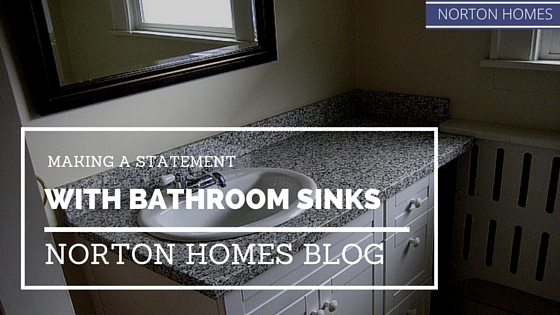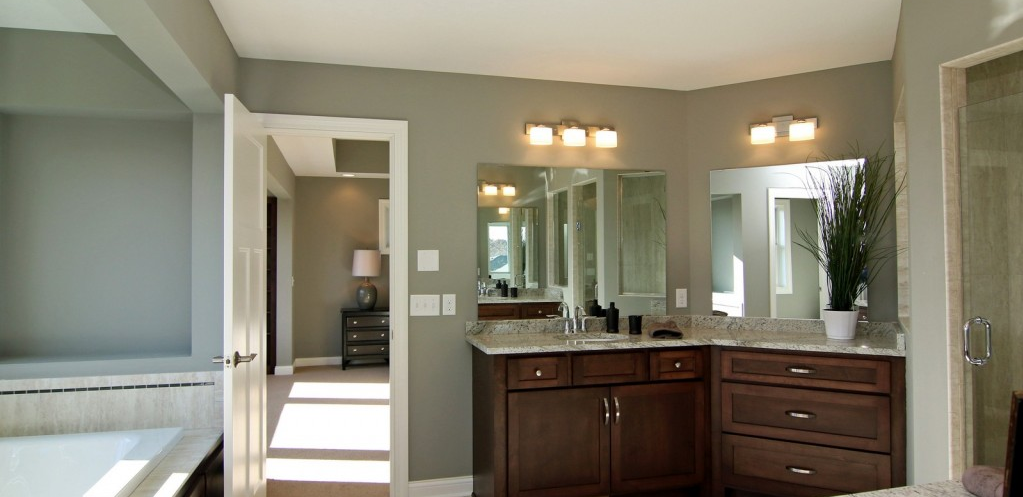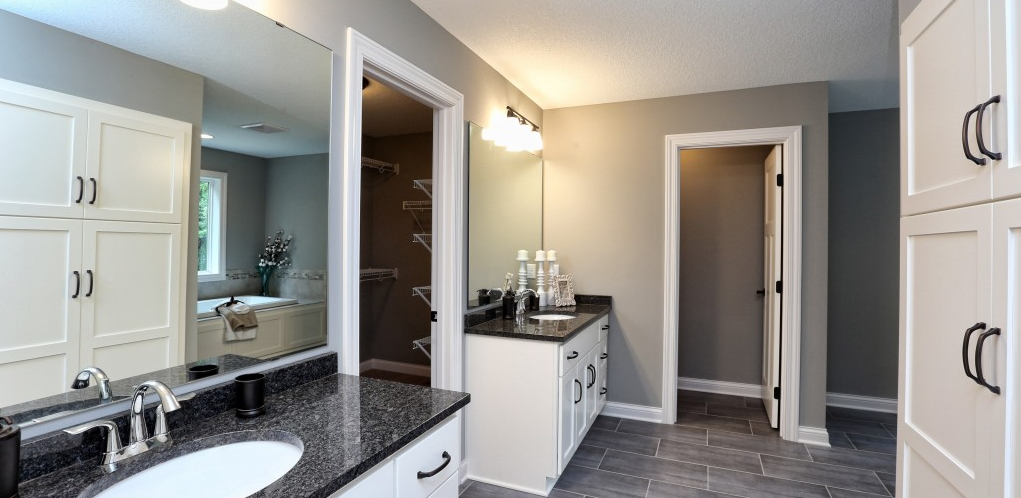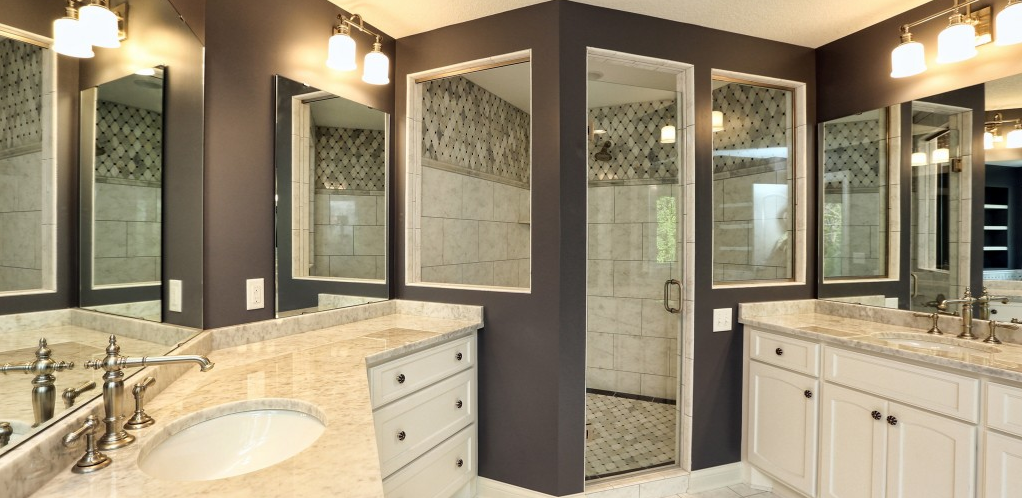Making a Statement with Bathroom Sinks

Your bathroom sink is something you’ll use everyday. It’s important to find the right balance between aesthetics and functionality when choosing from the many types of bathroom sinks to install in your custom built home. The ideal bathroom sink sets a focal point. It also compliments the décor of the bathroom. Every homeowner wants to make a purchase decision that will last for years or decades. Consider these factors before you buy:
Installation Types
Wall mounted
Usually found in smaller bathrooms, these sinks connect directly to the wall, allowing for storage space below. They’re a great option when you want a room to seem bigger.
Pedestal
These sinks have a classic look and can fit in most small bathrooms. Similar to wall mounted sinks; the bowl connects directly to the wall. A pedestal base adds support below. These sinks are typically made of porcelain and come in a variety of styles.
Self-rimming

Some sinks are the perfect fit in a bathroom. For these top mounting sinks, it’s literally true. They fit into a countertop cutout. The rim of the sink overlaps the surface and holds it into place.
Vessel sink
Perhaps the most unconventional option, these sinks are made of a bowl that is set on top of the countertop. They are sometimes partially set within the vanity. If you’re looking for a more decorative option, this may be the sink you need.
Undermount

Undermount bathroom sinks connect to the vanity or countertop from underneath by using clips. This makes for a flat surface with and a clean look. You will need to finish the edge of the countertop hole for a finished look.
Material Types
Cast Iron
A durable metal that’s usually coated in enamel. Cast iron is durable and easy to clean. You can usually choose a preferred color with this material. Although it’s built to last, it’s still possible to chip the enamel top layer. With regular use, cast iron will remain intact for years.
Porcelain

A clay-based ceramic that’s relatively easy to clean. Porcelain can crack if hit by a heavy object. If you’re careful, you shouldn’t have any problems. This material is nonporous, so stains are typically not a concern.
Glass
Many vessel sinks use this material. Glass is very customizable in both color and shape. A glass sink is both decorative and functional. One drawback of glass sinks is that they are more difficult to maintain. Water deposits can leave stains over time. They can also be prone to cracking or chipping.
Stone

There are many different kinds of stone sinks including quartz, granite and marble. Depending on the type, these sinks are sometimes prone to showing water spots. A polished stone sink is more stain resistant than a porous one. Stone sinks are usually easy to clean, although you should be aware that certain chemicals in cleaning agents could damage the surface.
Concrete
This material is heavy, so consider what’s supporting the sink before purchasing. Concrete is a porous material by itself. To account for this, a concrete sink should be coated before use to prevent staining. Cleaning is a breeze and there are usually many color options to choose from.
Before making a purchase decision, ask yourself how you will be using the sink. If it will go through rough use every day, a more durable material such as cast iron or concrete may be the best choice. You’ll also want to make sure you have a compatible faucet for your sink. Nobody wants a sink that takes up half the bathroom, so be mindful of space. For smaller bathrooms, wall-mounted and pedestal sinks are your best bet. Our team at Norton is here to work with you to find a sink that perfectly fits your custom built home. We’re here to make sure your new home improves every facet of your life, starting with your bathroom sink!